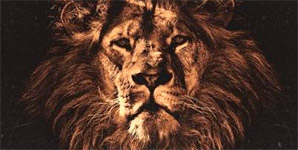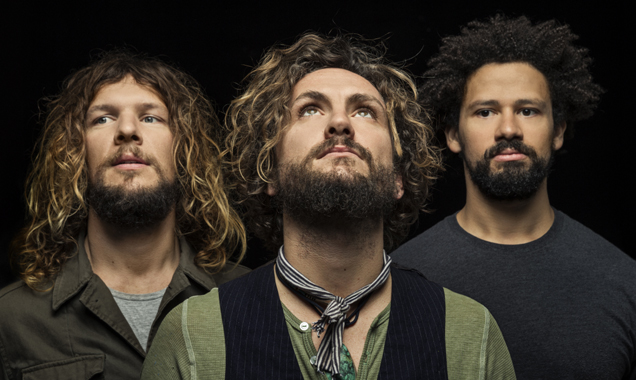John Butler Trio
Interview
A relative unknown in the UK, The John Butler trio has accrued a strong fan base along the way in both the US and his native Australia with TV appearances and even featuring on the cover of Rolling Stone magazine.
Their brand of genre straddling music fuelled by a hefty back catalogue of influences has resulted in a sound which is distinctly varied, interestingly appealing and far too big to pigeonhole.
Contactmusic talked to John about their attempts to crack the UK market.
Contactmusic: So you’re in London at the moment to play an instore at FOPP, how are you feeling about that?
John Butler: I’m feeling good about it, it should be fun; any excuse to play music is a good enough excuse for me basically.
CM: The fan base you’ve got in Australia, the US and in other parts of Europe, like Germany is something quite special, its really strong. Why do you think it is that you’re not so well heard of in the UK?
JB: Oh, well probably a few reasons, I think you need the belief of your record company first [laughs] I’m not too sure if they get it yet, It’s taking them a little while to come around. They seem to like this album, it may have captured their imagination a bit more than the last one, you know?
We play a sort of music that doesn’t fit into any genre and some people need boxes and their pigeonholes to get their music from and we’re just not one of those bands that you can do that with.
So I guess for some people the music is not as easily accessible as some other art forms and music, but I have a very strong belief that every time we play to British audiences we get an overwhelming response, it’s just once again getting their attention. The media in Britain is definitely, how would you say? ‘Coolcentric’ to the point where they don’t even know what ‘cool’ is anymore. So it’s sometimes hard to pull those people out of their matrix.
CM: It’s a shame that music press are very, like you say, ‘Coolcentric’ and they seem to pigeonhole what they like and what they don’t like. So do you think that that’s mainly run and propelled by the media or the capitalist nature of record labels?
JB: I dunno, I don’t think it’s a capitalist kind of political thing as much as it’s just an industry thing, the industry prides itself on certain things and so do critics and they are what they are. But I just think that it’s a very limited representation of the broader culture, the broader population’s tastes. Most people I know in Britain and in America and throughout the world have a very broad variety of taste but it doesn’t seem like the media of the music industry really caters to that, they only champion who they feel like championing. But you get that, it just makes for a different strategy for bands like us, who are not going to be the next ‘cool’ thing. But the thing is we’re not going to be the next cool thing that everyone forgets about either, after we fade away or after the ‘cool’ fades away we’re still going to be around.
I mean, I have a great respect for a lot of their tastes; I love Lily Allen, I love the Arctic monkeys and I think there are some really cool things, I just think it’s very selective.
CM: That’s interesting, but very true. I mean you’ve always received a warm welcome like when you played the Cambridge folk festival. Do you think that radio play is the key to greater exposure of your music?
JB: Yeah, we’ll just see how the radio goes, it’s the usual things like radios and record companies getting behind something and that’s all it takes you know. Most people are into a variety of things, like I said before they just need to be lead, people need to be lead. Unfortunately it takes people with balls to try to do something a little different and if there’s nobody who’s really going to stick their neck out and say: “hey, I reckon this is great, I believe in it” and there’d a lot less of that nowadays because everybody’s so afraid of not looking ‘cool.’
CM: Do you think that with powerful tools such as ‘Myspace’ and the Internet we’re moving away somewhat from the control being held by the media and the labels and that fan’s are taking a lot more control over what they listen to?
JB: To a certain degree yeah, to a certain degree: yeah for sure.
CM: Do you think that’s quite important for artists similar to yourself , who are not genre specific?
JB: Yeah, yeah it’s certainly helped us engage more, I’m so interested in playing instruments that were designed 300 years ago that I’ve not really thought about engaging my laptop as much as [laughs] I’m so much more into playing music than working out how to get people on Myspace, maybe I should, I dunno
CM: No no definitely not, other people can do that for you can’t they?
JB: Maybe, yeah
CM: So, moving on to the music: you do have a strong, varied sound. Such as, I really like the ‘blue grass’ element of certain tracks, why do you that ‘blue grass’ is such an emotive sound?
JB: I dunno, which songs were you thinking of?
CM: I’m not too sure, I’m not too up on all the track names; I only just received a promo a few hours ago…
JB: Is it funky tonight?
CM: It must be Funky tonight, yeah.
JB: Err I dunno, I mean that song is like blue grass- disco - Sinatra, I love blues, I love country, I love reggae, I love hip hop, I love dance, hall, you know, I love Black Sabbath and those things are kinda like being mashed up into one sound and I guess it has it’s roots in ‘roots’ music because, like all good music does. Like with indie rock and roll or hip hop, it’s all ‘roots’ music. It’s all Europeans and slaves hitting America and colliding in another big mash-up.
All good music is just mashed up music, its not just one thing, so that’s what we do we just mash up the sounds that we like,
CM: So did you always listen to a sort of eclectic range of music while growing up?
JB: Yeah, I mean I love Beastie Boys and Q-tip and A Tribe called Quest and De la Soul; but I love Mississippi, John Hurt and Gillian Welch and The Stanley Brothers and Black Sabbath and Tool and Soundgarden, and it’s kinda a mixture of Tracey Chapman, Bob Marley and Jimi Hendrix – those are the things I love listening to on a daily basis.
CM: Wow, Yeah? So, I mean going back a little bit, you came from a busking background; was that something you really liked doing as a musician just to get your music out there?
JB: It was just a natural thing really, I had a voice and my instrument and I love the street call too, I love walking down the street and seeing graffiti and seeing social commentary, you know? Whether it be in the form of theatre arts or circus or graffiti or music and I was always really kinda intrigued by that so that’s kinda just where my heart lead my when I had something to offer.
It was just such a direct way, I didn’t have to go get a gig. I just found a free bit of sidewalk and just plugged in my amplifier and put my head down and got right into it
CM: So do you feel like busking helped make you into the artist that you are today?
JB: Yeah, sure, I mean It definitely was the best, independent way of starting as far as having an indie beginning and ethos still to this day. People asked me for tapes – I made tapes, which lead to manufacturing my own albums and selling them on the street and so you become your own independent record label quite quickly and it’s something that in Australia, is still there; I still have my own record company and we grew into the first independent record company ever to debut a number one in the country and really great things like that and it all kinda started from getting out on the street and engaging people and being able to hold people with the music. People who don’t have to be there but just people who you keep there involuntarily [laughs] and can’t help but be drawn in there and you learn about dynamics and performance and business. You learn about marketing and you learn all these things really quickly and on a real street level.
CM: So, having that kind of investment and kind of envelopment into your music and into all aspects of it, is that another reason why you co-produced the current album? Do you like to keep a grasp on everything that’s going on?
JB: I do, yeah. I mean it’s my art and I’m the father of it , I’m the keeper of it and it’s with me and it’s chosen me to come through and it’s my duty to make sure that . . .
CM: Your voice is heard?
JB: Yeah! You know, the little hatchling that you’ve given birth to leaves the nest the way you want it to and you want to protect it and there’s sometimes people who have other ideas for your idea and you have to go “nah no no no no, this is what it is” and you need to refocus people around you and I guess that’s what I kinda meant about the record company over here, you know, it’s like they need to kind of tune into my headspace and once they tune into my headspace they’ll kinda tune into the music and when they tune into the music then they tune into the vision and the dream and then they get it and then they’re on and then we’re all on the same side.
CM: So, was it hard kind of working on and co-producing with Mario?
JB: No, it was great. He’s a real sensitive guy and he knew that I had strong ideas like production ideas that were worthy and I was writing good songs and he didn’t have to do a lot, he’s not the kind of person who just changes things for just the sake of putting his stamp on it; he just added to it when he thought he could and he did a great job, it was a really great symbiotic relationship
CM: Cool, so the album’s out in the UK on April the 9th and you’ll be playing a one-off gig on the 26th of April in London. Why are you not playing any more dates in the UK?
JB: Well it’s just early and there’s not a big call for it you know? There’s so many other people who are really ready to go in France, Germany, America and Australia who we’ve really built relationships up with and we honour them and until that relationship has gotten to that level over here, I mean there’s not a lot you can do, we come over here as much as we think it’s necessary and we’re just waiting for people to tune in, you know? And sometimes it takes time.
CM: Yeah, well I hope the album will do that and you’ll be back for some festivals hopefully? That’d be good.
JB: Yeah, I mean the main thing is just getting to British people, were not just an Aussie band who really wants to play to Australians in England. We don’t mind people coming [laughs] but we’re not just one of these bands that are just happy, like thinking ‘oh cool we can just go to England and play to like 5000 Australians and it’ll be cool, it’d be just like we were playing in Australia [laughs]. I’ll go play Australia for that. But yeah slowly but surely, I mean I have a really strong belief.
CM: Yeah I have as well, I really do.
JB: Cool, well that’s good then for someone who’s only just been introduced to it, that’s great.
Interview by Adam Adshead

_chart_awards_1783374.jpg)



